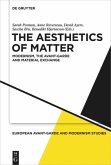The category of theatrical character has been swiftly dismissed in the academic reception of no-longer-dramatic texts and performances. However, claims on the dissolution of character narrowly demarcate what a subject is and how it may appear. This volume unmoors theatre scholarship from the regulatory ideals of liberal humanism, stretching the notion of character to encompass and illuminate otherwise unaccounted-for subjects, aesthetic strategies and political gestures in recent theatre works. To this aim, contemporary philosophical theories of subjectivation, European theatre studies, and experimental, script-led work produced in Britain since the late 1990s are mobilised as discussants on the question of subjectivity. Four contemporary playtexts and their performances are examined in depth: Sarah Kane's Crave and 4.48 Psychosis, Ed Thomas's Stone City Blue and Tim Crouch's ENGLAND. Through these case studies, Delgado-García demonstrates alternative ways of engaging theoretically with character, and elucidating a range of subjective figures beyond identity and individuality. Alongside these analyses, the book traces a large body of work that has experimented with speech attribution since the early twentieth-century. This is a timely contribution to contemporary theatre scholarship, which demonstrates that character remains a malleable and politically-salient notion in which understandings of subjectivity are still being negotiated.
Bitte wählen Sie Ihr Anliegen aus.
Rechnungen
Retourenschein anfordern
Bestellstatus
Storno








